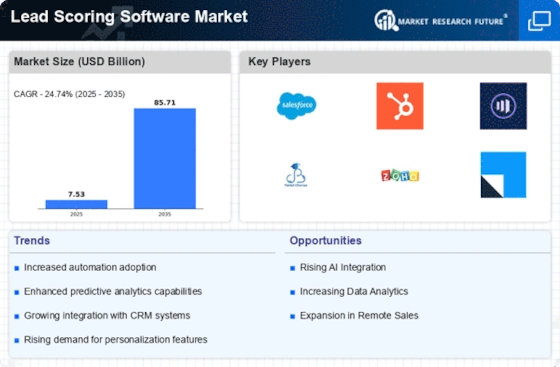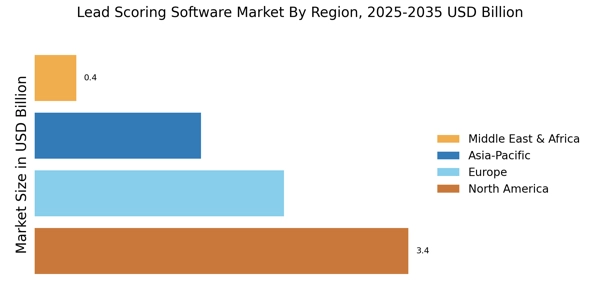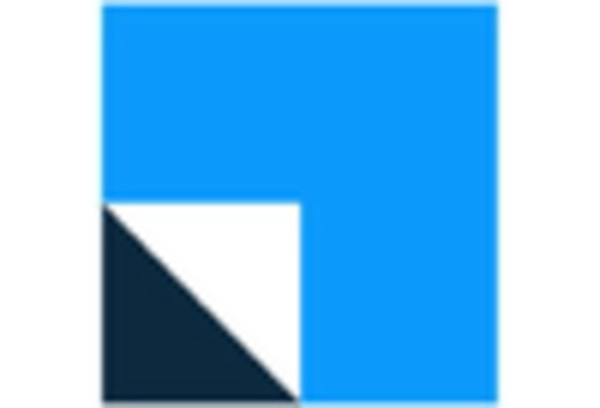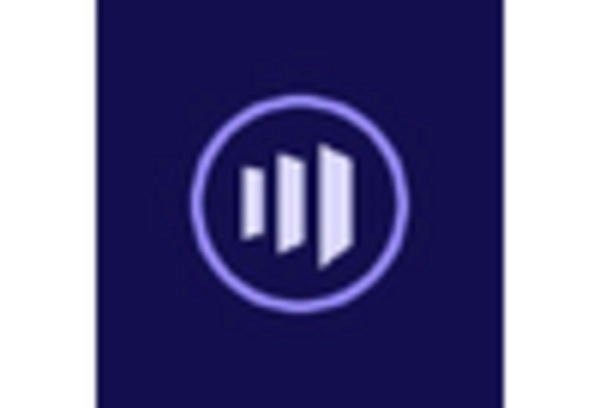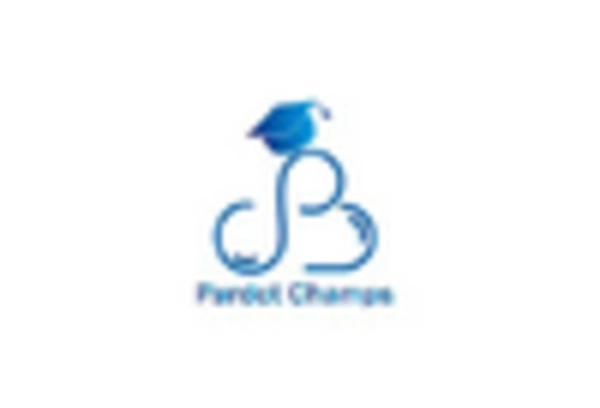Rise of Automation in Sales Processes
Automation is transforming the sales landscape, and the Lead Scoring Software Market is no exception. The integration of automation tools within lead scoring systems allows organizations to streamline their sales processes, thereby enhancing efficiency and productivity. As sales teams face increasing pressure to meet targets, the ability to automate lead scoring can significantly reduce the time spent on manual tasks. Reports indicate that companies employing automated lead scoring solutions can achieve a 20% increase in sales productivity. This trend suggests that the Lead Scoring Software Market will continue to grow as businesses seek to leverage automation to gain a competitive edge in their sales strategies.
Expansion of Digital Marketing Channels
The proliferation of digital marketing channels is significantly impacting the Lead Scoring Software Market. As businesses diversify their marketing efforts across various platforms, the need for effective lead scoring becomes increasingly critical. Digital channels such as social media, email, and content marketing generate vast amounts of data, which can be harnessed through lead scoring software to identify high-quality leads. Statistics reveal that organizations employing lead scoring tools in their digital marketing strategies can achieve a 40% increase in lead conversion rates. This expansion of digital marketing channels is likely to fuel the growth of the Lead Scoring Software Market, as companies seek to optimize their lead generation efforts.
Growing Demand for Data-Driven Marketing
The Lead Scoring Software Market is experiencing a surge in demand for data-driven marketing strategies. Organizations are increasingly recognizing the value of leveraging data analytics to enhance their marketing efforts. This trend is evidenced by a reported increase in the adoption of lead scoring solutions, which enable businesses to prioritize leads based on their likelihood to convert. As companies strive to optimize their marketing budgets, the need for effective lead scoring tools becomes paramount. According to recent statistics, businesses utilizing lead scoring software have seen conversion rates improve by up to 30%. This growing emphasis on data-driven decision-making is likely to propel the Lead Scoring Software Market forward, as more organizations seek to implement sophisticated lead management systems.
Emergence of Advanced Analytics and Machine Learning
The integration of advanced analytics and machine learning technologies is reshaping the Lead Scoring Software Market. These innovations enable organizations to analyze vast datasets and derive actionable insights, enhancing the accuracy of lead scoring models. As machine learning algorithms evolve, they can identify patterns and trends that traditional methods may overlook, leading to more precise lead prioritization. Recent findings suggest that companies utilizing machine learning in their lead scoring processes can improve their lead conversion rates by up to 35%. This emergence of advanced analytics is likely to drive the Lead Scoring Software Market, as businesses increasingly adopt sophisticated technologies to refine their lead management strategies.
Increasing Focus on Customer Relationship Management
The Lead Scoring Software Market is closely linked to the evolving landscape of customer relationship management (CRM). As businesses prioritize building long-term relationships with customers, the demand for effective lead scoring solutions is on the rise. Lead scoring software enhances CRM efforts by providing insights into customer behavior and preferences, enabling organizations to tailor their marketing strategies accordingly. Recent data indicates that companies utilizing lead scoring in conjunction with CRM systems experience a 25% increase in customer retention rates. This growing focus on customer-centric approaches is likely to drive the Lead Scoring Software Market, as organizations seek to improve their engagement and retention strategies.


